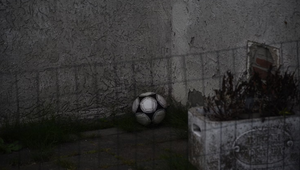
Planning for the Best: Why Strategy Is Not Rigid or Set in Stone with Henry Nash

Henry was head of planning at Octagon and FRUKT, responsible for the agency’s strategic offering across research, brand planning and comms strategy. Henry spent formative years in London agencies including BBDO, Rapier, TMW, and Publicis Chemistry, gaining experience across traditional advertising, direct marketing, and consumer experience. Henry recently won an APG award for his work on Paddy Power’s now-iconic ‘Save Our Shirt’ campaign and has been quoted extensively in UK and global media including by The Athletic, ESPN, and USA Today. An entrepreneur by nature, he’s also founded and exited two businesses.
LBB> What do you think is the difference between a strategist and a planner? Is there one?
Henry> Ironically, given strategy’s reputation as the brains of our industry, I don’t really know. I haven’t spent any time thinking about it in all honesty. Which suggests that the roles have blurred into one another. A strategist feels like a broad term that could encompass a range of roles, whereas I think we all have a decent idea on the role of the planner. How’s that?
LBB> And which description do you think suits the way you work best?
Henry> In more recent years, my role is broader than planning. But my heart is that of a planner’s. I lie. I’m actually a wannabee copywriter that fell into planning.
LBB> We’re used to hearing about the best creative advertising campaigns, but what’s your favourite historic campaign from a strategic perspective? One that you feel demonstrates great strategy?
Henry> Arguably, admiring a campaign for its strategy is like going to a puppet show and looking at the strings the whole time. To that end. . . I fell in love with ‘Nothing Beats A Londoner’ from the moment I first saw it, and rewatched it over and over. It managed to sum up the spirit of its residents in such a sharp manner. But in a way no-one had before. A year or so later, I heard the inspiration was a photo of a man calmly nursing his pint during the midst of a London terrorist attack. It all made sense after that.
A lesser known one over here is Immortal Fans from Brazil. Using the power of football to solve the organ donation problem in Brazil. It’s remarkable. And from childhood, the Guinness Brothers spot. Like a feature film squeezed into 60 seconds.
LBB> When you’re turning a business brief into something that can inform an inspiring creative campaign, do you find the most useful resource to draw on?
Henry> If it’s something I can quickly identify with, then I’ll always start with my own life experiences and try to build and prove the hypothesis from here. If I haven’t got a clue about the subject or audience, then I’m probably busy scrawling through social media or trying to talk to people. Failing that, I go back to option a again.
LBB> What part of your job/the strategic process do you enjoy the most?
Henry> Probably the bit (if it happens) where the creatives tell you that they can’t wait to get started. The worst bit (I know you didn’t ask) is when a client doesn’t acknowledge the thinking or work and immediately asks an innocuous question about using the wrong logo on a presentation.
LBB> What strategic maxims, frameworks or principles do you find yourself going back to over and over again? Why are they so useful?
Henry> I’m not a stickler for frameworks as the shape of problems can differ, and therefore the solution. I enjoy a principle or two though. The most recent one I love is, ‘you must know at least as much as the audience you’re talking to’. So true. In sport, sadly this is nearly always not the case – not when there are fans around who went to their first game in the 1940’s.
LBB> What sort of creatives do you like to work with? As a strategist, what do you want them to do with the information you give them?
Henry> The best creatives I’ve worked with are strategic by nature. So they appreciate that a strategy is not rigid and set in stone. Often, they will often improve the thinking through their work, and the same goes the other way. It’s an ongoing process of sharpening each side.
The hardest bit for the creatives is something we call the ‘flip’. Not just answering the brief and relaying the strategy, but making a creative leap that dramatises in a way nobody had thought about before.
LBB> There’s a negative stereotype about strategy being used to validate creative ideas, rather than as a resource to inform them and make sure they’re effective. How do you make sure the agency gets this the right way round?
Henry> If that’s happening where you work, your next bit of strategizing needs to be how you get out of that agency. It’s a dead-end role and you can’t grow. Strategy needs to be not just respected, but represented at the top table of the business. I’ve been at a shop or two where leadership consists of people of the same profile and skills. It doesn’t work or end well.
LBB> What have you found to be the most important consideration in recruiting and nurturing strategic talent?
Henry> As someone who is somewhat unorthodox in most things, I always feared I would be a terrible leader for others. As time went on, I found an approach that seemed to work best for everyone and was based on my own experiences. I suppose it comes down to autonomy. Giving others the space to learn and grow is essential, but providing just enough support in the background for them to know there is a safety net behind them. There is nothing worse than feeling like you’re simply executing someone else’s thinking. I used to fear others coming up with better thinking than me. As time has gone on, I love it.
LBB> In recent years it seems like effectiveness awards have grown in prestige and agencies have paid more attention to them. How do you think this has impacted on how strategists work and the way they are perceived?
Henry> Honestly, I haven’t noticed a change in how strategists behave. Obviously, the danger is that we all become obsessed by effectiveness whilst simultaneously forgetting what the biggest driver of effectiveness is in the first place.
LBB> Do you have any frustrations with planning/strategy as a discipline?
Henry> The job titles.
Those who see strategy as a standalone product and not a means to getting to great work.
And time. Always time.
LBB> What advice would you give to anyone considering a career as a strategist/planner?
Henry> Well that’s easy. Do it.
Unless you’re a wannabe copywriter.















